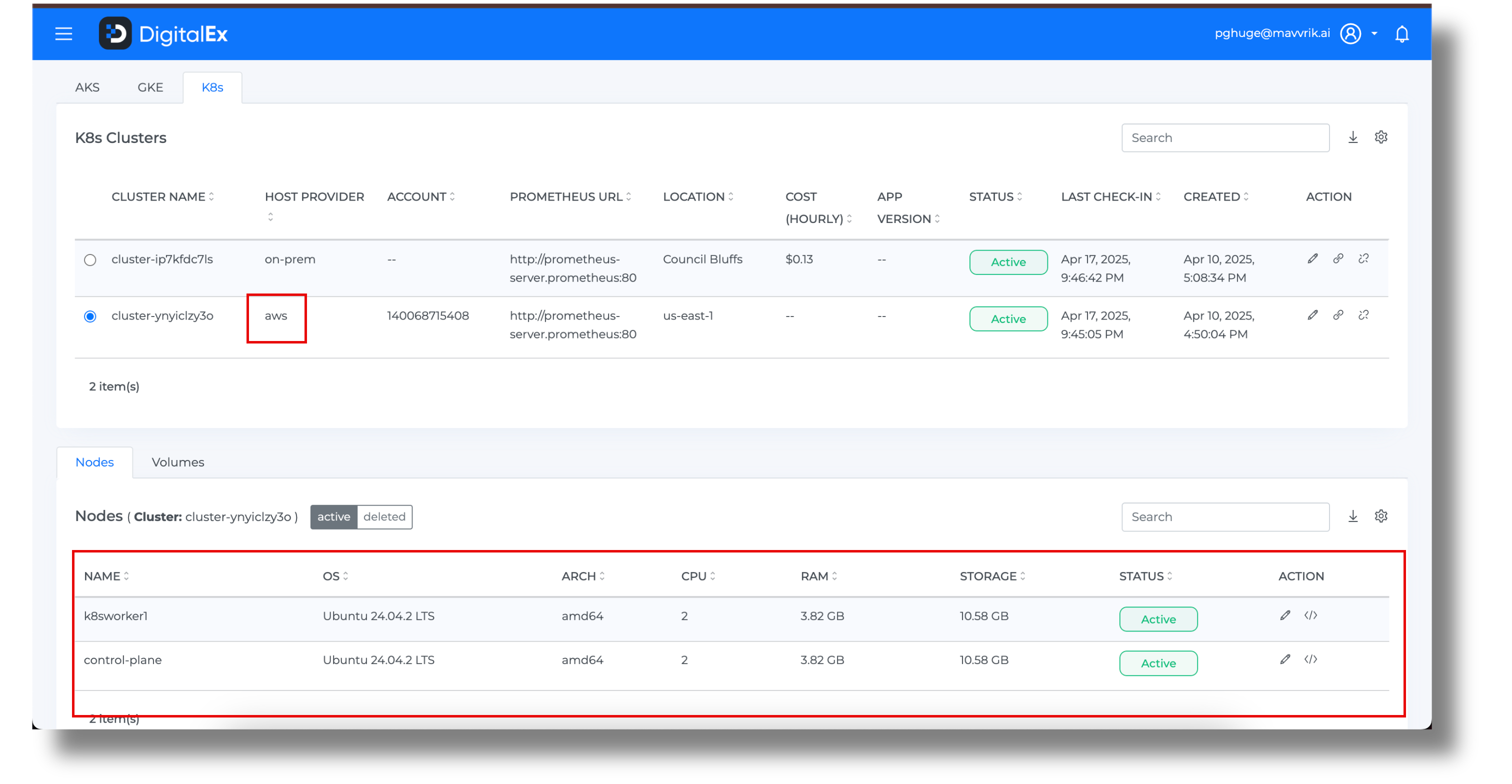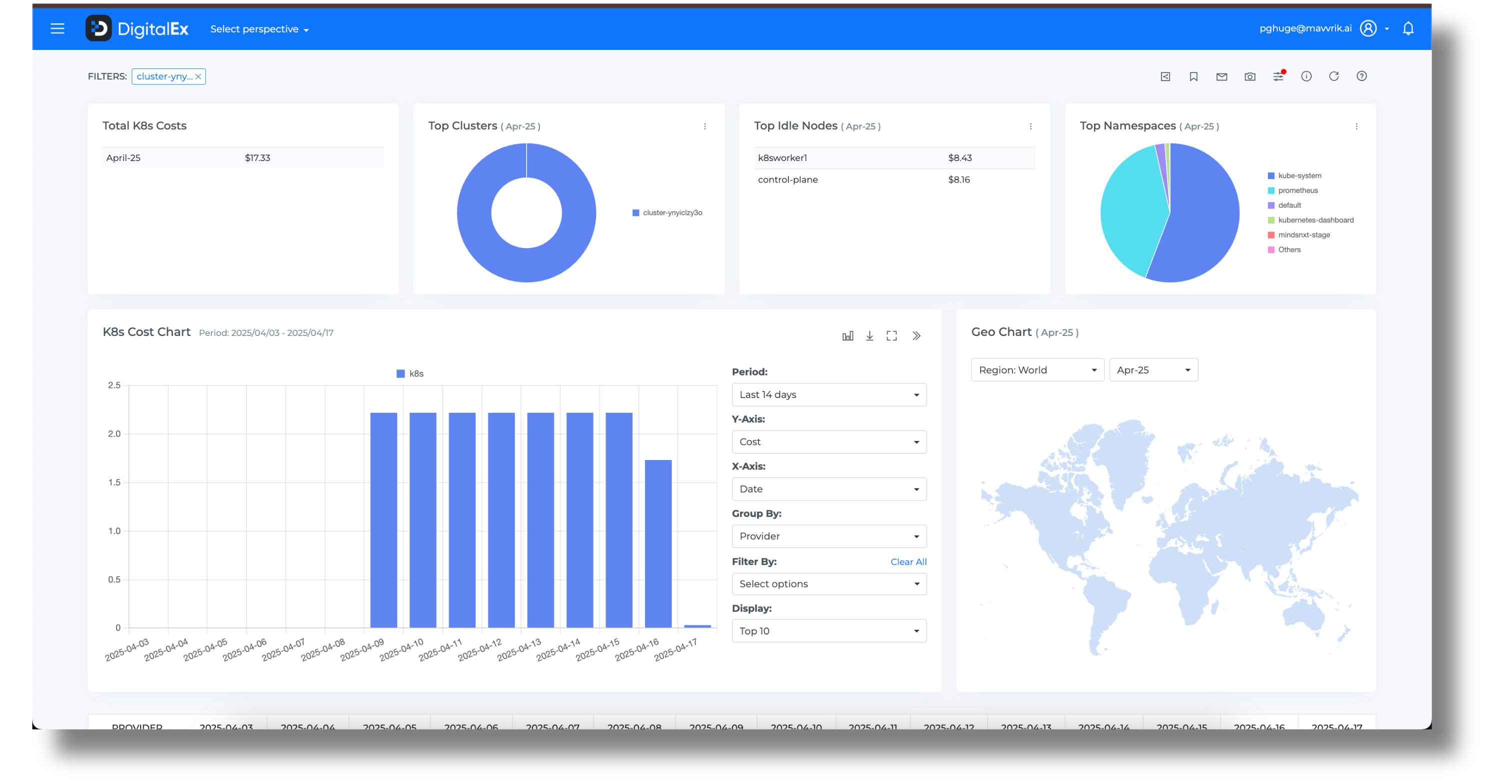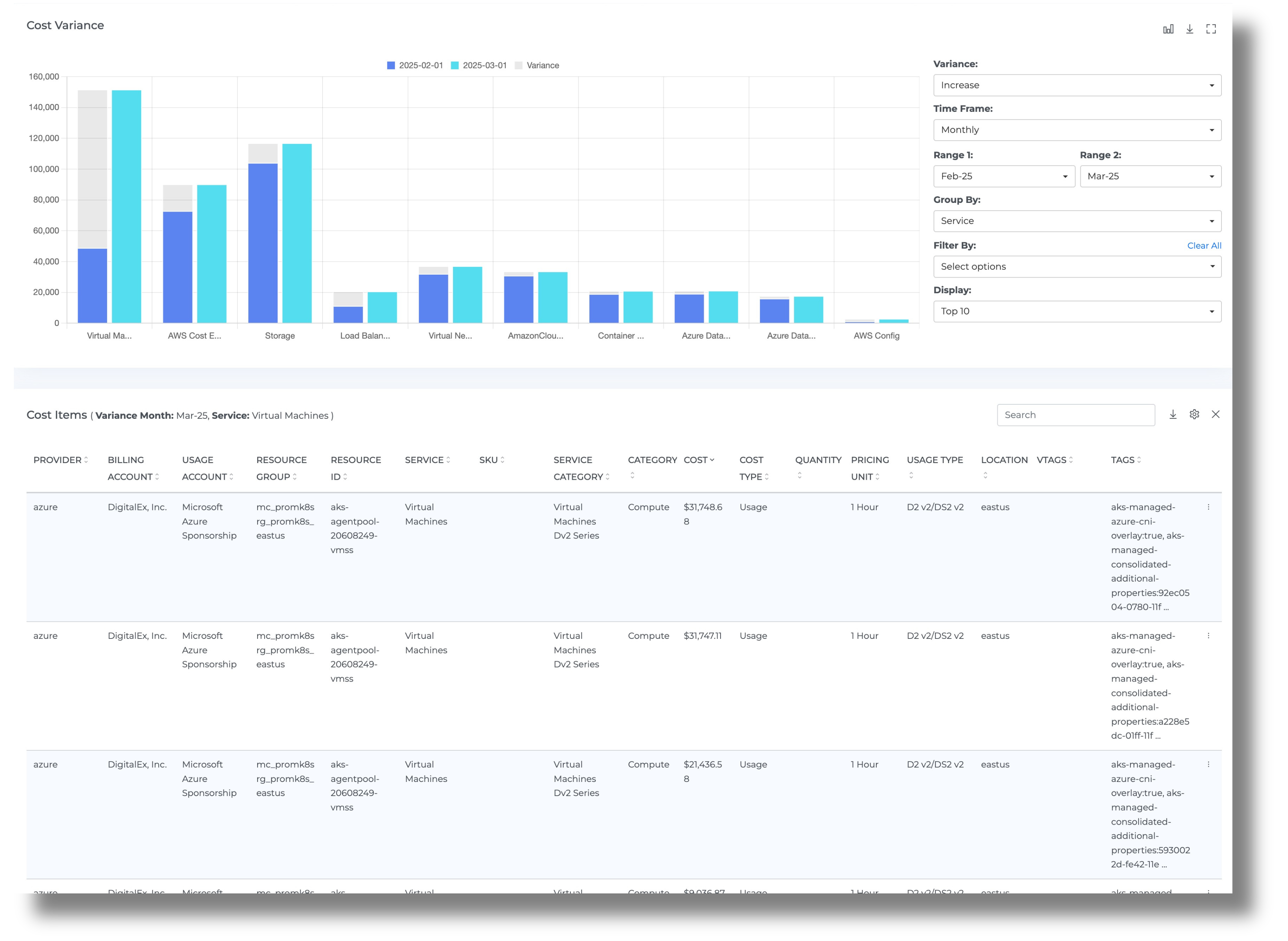April 2025
We're excited to announce the general availability of our April 2025 release! This update extends our existing AI cost governance capabilities while bringing powerful new features to help you better manage and optimize costs across cloud, Kubernetes, hybrid, and on-premises environments. For details, reach out to your Mavvrik representative or check our updated documentation: https://help.digitalex.io.
Release Version | Features |
|---|---|
Release-2025.04.16 |
|
AI Insights Dashboard - Azure OpenAI
Our AI Insights Dashboard takes Azure OpenAI cost governance to the next level by providing comprehensive visibility into model performance, usage patterns, and consumption metrics, helping teams identify optimization opportunities and control AI spending.
Enhanced Model Visibility: Presents comprehensive cost breakdowns, usage metrics, and performance statistics for Azure OpenAI models, enabling users to identify opportunities to switch to more efficient or lower-cost alternatives.
Complete Usage Analytics: Displays detailed model utilization patterns, helping users independently identify underutilized models for potential cleanup or high-usage models that may require Provisioned Throughput Units (PTUs) scaling.
Detailed PTU Consumption Insights: Delivers clear visualization of Provisioned Throughput Unit (PTU) consumption trends, supporting informed decisions about capacity purchasing and resource optimization.
Kubernetes Cost Support on Self-Hosted EC2
Added support for Kubernetes cost visualization on self-hosted EC2 instances (outside of EKS).
Collects EC2 instance metadata to attribute infrastructure costs to Kubernetes workloads.
Enables accurate cost visibility, reporting, and optimization for self-managed Kubernetes environments.
Helps teams running Kubernetes directly on EC2 track spend at the workload level.


Advanced Tag Standardization Capabilities
Simplify and streamline tagging standardization with our new rule-based virtual tagging capabilities that enforce consistent tagging across all environments.
• Standardize Tag Keys Only – Create rules to unify inconsistent tag keys (e.g., Env, ENV, Environment) under a standardized key (e.g., ENVIRONMENT).
• Standardize Tag Values Only – Standardize tag values (e.g., prod-root, prod-tenant) while keeping the tag key intact for cleaner reporting and consistency.
• Standardize Tag Keys & Values – Clean up inconsistent tag keys (e.g., env, Env) and standardize their values (e.g., prod-root, prod-tenant → prod) for better cost attribution.
• Dynamic Virtual Tags – Automatically create tags by extracting values from resource attributes using RegEx (e.g., extract t4g.medium from usage_type:BoxUsage:t4g.medium).

Pattern-Based Advance Filtering with REGEX
Enables advanced filtering using regular expressions within the Advanced Filters panel.
Supports pattern-based matching for tags, resource names, and other string-based attributes.
Ideal for identifying inconsistencies, enforcing naming standards, or isolating custom groupings.
Enhances segmentation accuracy and flexibility for power users conducting deep cost analysis.

Cost Variance Delta - Stack View
This update to our Cost Variance dashboard provides powerful visual insights into month-to-month spending changes, dramatically simplifying the identification and analysis of cost fluctuations across your environment.
Delta Stack Breakdown: Enhanced the Cost Variance view to display a visual delta stack that highlights the components contributing to cost changes.
Interactive Line Item Drilldown: Clicking on a delta segment now reveals only the specific line items driving that variance, enabling faster root cause analysis and targeted optimization.

Platform Experience Enhancements
Improved AWS Bulk Onboarding: Accelerated the AWS bulk usage onboarding workflow with a new +Add feature for member accounts. Users can now easily add these accounts using the +Add option directly from the onboarding page, streamlining account management and setup.
Enhanced Scope Selection for Teams : We've introduced a unified Scope selector, replacing separate dropdowns for Accounts, Data centers, and Clusters. It enables centralized access control across Billing Account, Usage Account, Resource Group, Datacenter, and Cluster.
Anomaly Alert Improvements : Included Resource ID in anomaly alerts to improve traceability and investigation.
Session Timeout Warning Dialog: Session timeout behavior has been updated to improve user awareness. Users will now receive a warning with a countdown 3 minutes before being logged out due to 30 minutes of inactivity. During this countdown, they can choose to continue or end their session.
Instance Type Filter: Added support for filtering and grouping by Instance Type
